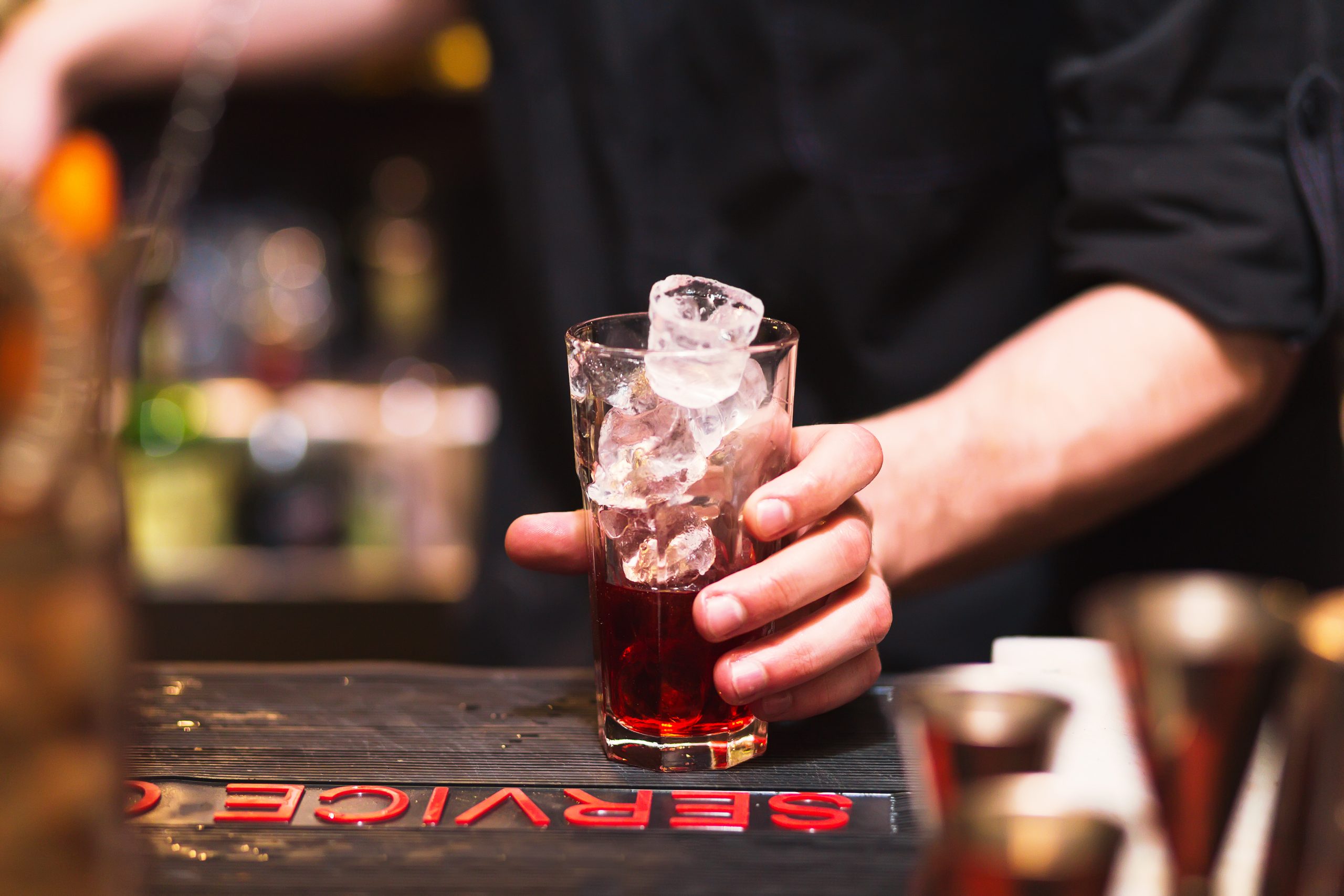


When you think of a thief, you might picture the classic stereotype of a burglar with a black ski mask and a sack filled with cash. But, in reality, most bar theft is committed by employees. In fact, according to the National Restaurant Association, 75% of inventory shortages are due to employee theft.
In many cases, they don’t even consider their actions to be stealing. After all, most employees aren’t acting maliciously—they simply don’t realize the severity of their actions. Though some might steal cash and product, most employees are more likely to steal by over-pouring and giving away free drinks – and as a bar manager, it’s important to keep tabs on all forms of theft.
Regardless of the method or the intent, there are measures you can take to reduce product loss and keep costs down at your establishment. Here are 11 ways to prevent theft and waste at your bar.
Hiring great staff members is essential for preventing all forms of theft. An experienced, trustworthy team with glowing reviews will likely pour more accurately, follow bar protocol, and understand how their actions affect the business right from the very beginning.
In order to find the right person for the job, use your best resource—your current, trusted staff. They understand your culture and they know what you’re looking for, plus, they can provide you with a smaller, more screened pool of applicants. If you want to branch out, you can also use job search sites and social media to find proper talent. But no matter how you find potential employees, be sure to perform reference checks to make sure they don’t have a history of theft or misconduct.
Your employees will be less likely to steal from you if they feel their work is valuable and they have a positive relationship with you. Create an environment where your staff feels a sense of ownership or equity in their work. Let them pour a certain number of comped drinks a night, ask them to help you create a new drink list, and frequently ask for their opinions. Show that you appreciate their work by taking the time to talk to them, offering rewards or performance bonuses for outstanding work, or hosting out-of-work social activities.
Every now and then, a liquor bottle will slip out of a bar back’s hand or a bartender will give a free drink to a regular. If you require them to ring it up in the POS system, you’ll be able to keep track of spills and comps, helping you distinguish these from actual theft at your bar. It’s also good practice for bartenders to ring up drinks before they begin to pour. This ensures that no drinks go unrecorded or unpaid for.
As the bar manager or owner, you can use the admin settings in your POS to check any of your bartenders’ tabs at anytime. It’s a good habit to routinely check your bartenders’ tabs. Not only will it give you a good idea of what’s going on in your business, it’s also a good way to keep track of what’s actually happening at your bar compared to what bartenders are ringing in.
For example, if a bartender’s friend sits at the bar for a few hours, you can check the bartender’s tab after her friend leaves. If the POS report shows your bartender only rang in a shot and a beer, but you also saw her friend drinking a glass of wine and a margarita, you’ll know the bartender gave away drinks without recording them as comps.
Also, make sure you safeguard all POS passwords and keep them safe from your bartenders. You don’t want them using your password to log in and learn their shift sales!
Although you might not like to think about it, sometimes employees will go out of their way to steal your cash. Surprisingly, a prime hiding spot is actually in the cash drawer itself. To limit this problem, close out the POS right at the end of the shift and remove all the cash drawers. This way, if staff members are hiding a portion of cash in the drawer, they’ll be forced to risk removing it when people are around instead of during the quiet of closing time.
When it comes to establishing a pour policy, there are a number of options to chose from. To reduce over-pouring, you can attach a ball pour spout to your liquor bottles. Made with durable plastic and three ball bearings, these spouts allow for a smoother, more exact pour. You can also opt for computerized pour spouts that distribute a certain amount like ball pour spouts do, but also provide strict inventory control, calculating, and consecutive reporting.
Another option is to use standard pour spouts and require your staff to use jiggers. These small measuring cups help bartenders measure a precise amount of alcohol, helping them craft precise drink recipes and avoid over-pouring. You can also allow the use of free pouring by attaching standard pour spouts and instructing bartenders to pour with a count system.
No matter what policy you choose to enforce, make sure to properly train each new staff member. It’s also important to regularly hold trainings and surprise pour tests to make sure bartenders are pouring accurately on a daily basis.
It’s a good idea to keep your staff’s bags and purses in a designated employee area with a closed, locked door and a camera installed. This is smart for two reasons: it prevents employees from stowing stolen product in their bags, and it prevents employees from stealing from each other.
Use secret shopper services like Barfly to find out what takes place when you’re not around. With the help of secret shoppers, you can gain valuable insights into your staff’s activities. Plus, if your bartenders know about their frequent visits, they’ll always be on their best behavior and they’ll be less likely to partake in fraudulent activities.
There’s no reason to leave your storage areas open to the public. Make sure your storage rooms are locked at all times and keys are only issued to bar managers. By securing your sitting inventory, you can keep it safe from breakage or theft. If you chose to install a security system with a code, make sure every employee is given a different code so you know who’s unlocking doors and when.
Although most people don’t have time to watch fourteen hours of security tape a day, installing security cameras is still a good anti-theft option. If you realize there’s significant variance in your bar inventory, security footage can be effective for proving the theft occurred. Also, if employees and guests see cameras, they’ll be less likely to steal products or pocket cash. To ensure this is effective, make sure the cameras are placed in the most important areas—in liquor storage, near the office safe, and facing toward all of the cash registers.
Involve your employees in your business. Demonstrate your average pour size, point out variance, explain pour costs, and describe what happens to the bar when you experience loss. Explain that if the bar’s sales suffer and you go out of business, they’ll lose their jobs as well.
Also, let staff know there are controls in place to prevent theft. If they’re aware you’re monitoring them, they’ll be less likely to try something. Let them know stealing results in termination. If one of your employees gets caught stealing, fire them to set the example for your other employees.
Bar theft is a serious problem in the industry. You always need to watch out for over-pouring, stolen cash, snatched products, and drink giveaways. Although it’s impossible to eliminate all forms of loss, with a solid plan in place you can create a strong defense.
It might not be the most glamorous of tasks, but if you don’t take bar inventory, product could be disappearing without your knowledge.
Want to see real-time insights and reports showing exactly where you’re losing product? Schedule a demo with one of BevSpot’s product specialists and we’ll show you.
